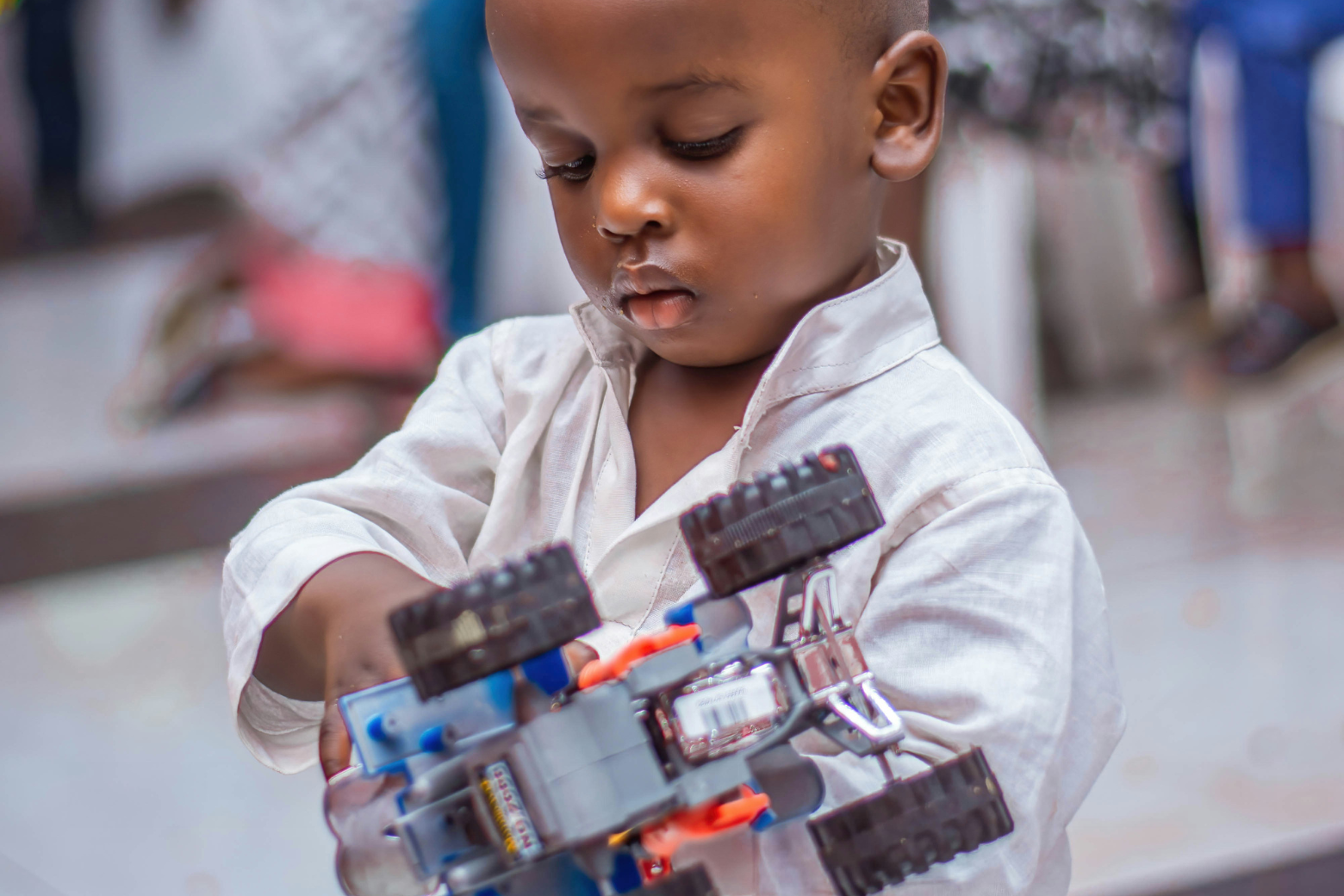The world is rapidly evolving, driven by the Fourth Industrial Revolution (4IR). This era demands a new set of skills, placing digital literacy at the forefront of future success. For young children in South African townships, introducing coding and robotics into their education isn’t just an added benefit – it’s a vital necessity for ensuring they are not left behind in this technological transformation. By equipping these learners with these crucial skills, we empower them to not only navigate the future but also to excel in their current studies and beyond.
Preparing for the 4IR: A Level Playing Field
The 4IR is characterized by the fusion of physical, digital, and biological spheres, leading to advancements in artificial intelligence, automation, and the Internet of Things. These technologies are reshaping industries and creating new job markets that demand a digitally skilled workforce.
Introducing coding and robotics to young learners provides them with the foundational skills required to thrive in this evolving landscape. Coding teaches computational thinking, problem-solving, and logical reasoning – skills that are transferable across various disciplines and essential for understanding how technology works. Robotics takes this a step further, allowing children to apply their coding knowledge in a tangible way, fostering creativity, innovation, and a hands-on understanding of engineering principles.
President Ramaphosa highlighted the urgency of this, stating in January 2023 that “the skills that our country needs, the jobs that can grow our economy, and importantly, the avenues for entrepreneurship that are so sorely needed, can best be achieved by increasing learner access to technical and vocational subjects.” The Department of Basic Education has taken a significant step by gazetting the Coding and Robotics curriculum for grades R to 9 in June 2024, recognizing the critical need to prepare learners for the future workforce.
Boosting Current Academic Performance
The benefits of coding and robotics extend beyond future job prospects. These subjects can significantly enhance children’s current academic performance by:
- Improving Problem-Solving Skills: Coding inherently involves breaking down complex problems into smaller, manageable steps. This systematic approach strengthens analytical and problem-solving abilities applicable to subjects like mathematics and science.
- Enhancing Logical Thinking: The sequential nature of coding helps children develop logical reasoning and the ability to predict outcomes, which are valuable skills in subjects requiring structured thinking.
- Fostering Creativity and Innovation: Robotics projects encourage children to think outside the box, experiment with different solutions, and design innovative creations. This creative mindset can spill over into other areas of their learning.
- Increasing Engagement and Motivation: The hands-on and interactive nature of coding and robotics can make learning more engaging and enjoyable, leading to increased motivation and a more positive attitude towards school.
Research has shown a positive correlation between technology education and academic performance. Educational platforms and interactive learning modules can make complex concepts more accessible and cater to diverse learning styles, ultimately improving understanding and retention.
Global Success Stories: Learning from International Examples
Several countries have already integrated coding and robotics into their national curricula, demonstrating the positive impact of this approach:
- Estonia: This nation has been a pioneer in digital education, introducing computer programming from the first grade. Their “ProgeTiger” program has seen widespread adoption, fostering digital competence and contributing to a thriving startup ecosystem. They have even developed a system to evaluate digital competence in students from the third grade onwards.
- United Kingdom: England made basic computer programming compulsory in schools starting from the age of five in 2014. This early exposure aims to equip all students with fundamental digital skills.
- South Korea: Recognizing the importance of software skills, South Korea has made software courses compulsory from primary school, with progressive training implemented across different grade levels.
While direct statistical comparisons between these countries and South Africa in terms of coding and robotics curriculum success are still emerging, the global trend clearly indicates the value of early exposure to these skills in enhancing overall educational outcomes and preparing students for the future.
Future Prospects: An Unfair Advantage?
For children in South African townships, acquiring skills in coding and robotics can provide a significant advantage in their future academic and professional lives:
- Access to High-Demand Careers: The demand for professionals with skills in areas like software development, data science, cybersecurity, and robotics is rapidly growing in South Africa and globally. Early exposure to these fields can open doors to lucrative and fulfilling career paths that might otherwise be inaccessible. The MICT SETA has identified several key 4IR skills programs, including data science, software development, and cybersecurity, highlighting the national focus on these areas.
- Entrepreneurial Opportunities: A strong foundation in technology can empower young people to become innovators and entrepreneurs, creating their own solutions to local challenges and contributing to economic growth within their communities.
- Enhanced Problem-Solving Abilities: Regardless of their chosen career path, the critical thinking and problem-solving skills developed through coding and robotics will be invaluable assets, making them more adaptable and effective in any work environment.
- Increased Digital Literacy: In an increasingly digital world, basic digital literacy is no longer sufficient. A deeper understanding of how technology works provides a significant advantage in navigating daily life, accessing information, and participating in the digital economy.
While the introduction of coding and robotics in township schools is a crucial step towards bridging the digital divide, it is essential to address challenges such as inadequate teacher training and limited technological infrastructure to ensure equitable access and effective implementation. Partnerships between government, private organizations, and communities will be vital in providing the necessary resources and support for these initiatives to succeed. That is why WOL Academy has chosen to position itself as a unifying factor between these different stake holders in order to ensure that township youth are not left behind in the field of coding and robotics.
Conclusion
Integrating coding and robotics into the education of young children in South African townships is not merely an option but a necessity. It is an investment in their future, equipping them with the skills to thrive in the 4IR, excel in their current studies, and ultimately contribute to a more prosperous and equitable South Africa. By embracing this technological shift in education, we can empower a generation of young learners to become the digital leaders and innovators of tomorrow.

